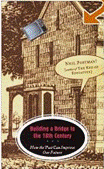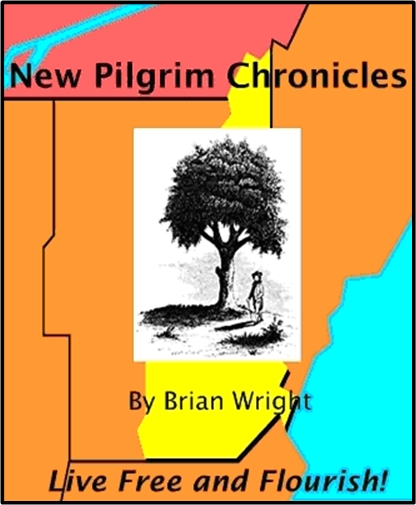

|
 |
|
2007 January 25
|
Please go to the new Coffee Coaster site implemented more gracefully in Wordpress. This page @ http://brianrwright.com/CoffeeCoasterBlog/?p=2864 |

1999, First Vintage Books, 193 pages
Neil Postman, longtime professor and eventual
chair of the department of culture and communication at New York University, sadly died
in 2003 at the age of 72. Bridge is his final book, and it deals with the same universal themes found in his earlier 20-odd works: language, reason, education, childhood, and the idea of progress.
Despairing over post-modernists who claim words don't stand for anything real, he makes a case for reading and writing.
Indeed, he feels if we don't come up with a meaningful narrative for our world, we're toast.
It is no accident, Postman is a huge fan of the two Thomases: Thomas Jefferson and Thomas Paine, particularly Paine.
Note: Thomas Paine wrote Common Sense and The Crisis. Common Sense sold as many as 600,000 copies, which would be equivalent to a run of 60 million copies in the United States today.
During the 18th century we were sewing the seeds for the end of monarchy and, eventually, slavery. Dr. Postman states that "men of the mind" in those heady days thought knowledge should be useful. Such Renaissance Men were known as philosophes, i.e. philosophers using their minds for great and just social causes."What is the problem to which the supersonic jet is the solution?" — pg.43.
Do we want a world in which, according to Thoreau, "All our inventions are but improved means to an unimproved end?""With this in mind [keeping the American dream alive], I suggest we turn our attention to the 18th century. It is there, I think, we find the ideas that offer a humane direction to the future, ideas that we can carry with confidence and dignity across the bridge to the 21st century." — pg. 17
I submit the central ideas of the 18th century are practical reason and political liberty. We can dust them off, add some bells and whistles fitting to the times, and apply them anew. I think the Good Doctor would be proud.


 |
 |
|||
| -- |